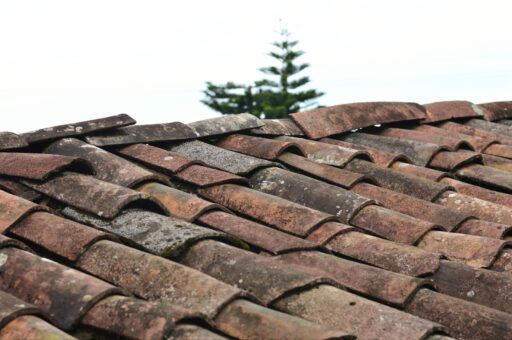
Choosing the right roofing materials goes beyond aesthetics and cost-effectiveness; it involves considering sustainability factors that benefit both the environment and your long-term budget. Sustainable roofing options have gained popularity due to their energy efficiency, durability, and eco-friendly properties. This guide explores key considerations when selecting sustainable roofing materials and offers insights into their design and installation.
Sustainable Roofing Materials
Sustainable roofing materials encompass a range of options that minimize environmental impact while maximizing efficiency and longevity. Metal Roofs: Known for their durability and recyclability, metal roofs are an excellent choice for sustainability. They reflect solar radiant heat, reducing cooling costs in warmer climates and enhancing energy efficiency. Green Roofs: These innovative roofs feature vegetation layers that provide natural insulation, reduce urban heat island effects, and absorb rainwater, promoting biodiversity in urban areas. Recycled Shingles: Made from recycled materials such as rubber, plastic, or wood fibers, recycled shingles offer durability and reduce landfill waste.
Design Considerations
The design phase of sustainable roofing plays a crucial role in maximizing its environmental benefits and performance. Orientation and Slope: Optimal roof orientation and slope can enhance energy efficiency by maximizing solar panel exposure or natural ventilation. Cool Roofs: Incorporating cool roofing materials with high solar reflectance and thermal emittance reduces heat absorption, lowers cooling costs, and mitigates urban heat island effects. Rainwater Harvesting: Designing roofs with integrated rainwater harvesting systems not only conserves water but also reduces runoff and supports sustainable landscaping efforts.
Installation Tips
Proper installation is essential to ensure the effectiveness and longevity of sustainable roofing systems. Professional Installation: Hiring certified contractors experienced in sustainable roofing ensures proper installation techniques and adherence to environmental standards. Maintenance Plans: Implementing regular maintenance schedules prolongs roof lifespan and enhances performance. Recycling and Disposal: Responsible disposal of old roofing materials and recycling options for debris contribute to sustainable practices and minimize environmental impact.
Wholesale Roof Replacement Company
When considering sustainable roofing options, partnering with a reputable wholesale roof replacement company can streamline the process and ensure quality service. These companies specialize in sourcing eco-friendly materials in bulk, which can lower costs and minimize environmental impact. They often provide comprehensive roof repair quotes that detail material choices, installation costs, and potential savings from energy-efficient solutions. Working with such a company not only simplifies the procurement of sustainable roofing materials but also guarantees professional installation and adherence to green building standards. This collaborative approach enhances the overall sustainability of your roofing project while optimizing financial and environmental benefits.
Benefits of Choosing a Wholesale Roof Replacement Company
Opting for a wholesale roof replacement company offers several advantages beyond cost-effectiveness. Expertise and Guidance: These companies have extensive knowledge of sustainable roofing options and can recommend the best materials based on your specific needs and budget. Access to Quality Materials: By buying materials in bulk, wholesale companies ensure access to high-quality, eco-friendly products that may not be readily available in retail outlets. Project Management: They often provide project management services, overseeing the entire roof replacement process from procurement to installation, ensuring efficiency and quality control.
Environmental Impact and Community Benefits
Choosing sustainable roofing materials and partnering with a wholesale replacement company extends benefits beyond your property. Reduced Carbon Footprint: Sustainable roofs contribute to reducing carbon emissions through improved energy efficiency and reduced energy consumption for heating and cooling. Supporting Local Economy: Many wholesale roof replacement companies source materials locally, supporting regional economies and reducing transportation-related emissions. Community Engagement: By investing in sustainable practices, homeowners and businesses can inspire others in their community to adopt eco-friendly solutions, fostering a collective commitment to environmental stewardship.

Maintenance and Longevity
Maintaining sustainable roofing systems is key to maximizing their lifespan and environmental benefits. Regular Inspections: Schedule routine inspections to identify and address potential issues early, such as leaks or damage to green roof vegetation. Cleaning and Debris Removal: Clear debris and maintain cleanliness to prevent clogging of rainwater harvesting systems and ensure optimal performance. Upkeep of Solar Panels: If integrated, ensure solar panels are clean and functioning efficiently to maximize energy generation. Proactive Repairs: Promptly address any repairs to prevent minor issues from escalating into costly repairs or replacements. By implementing a proactive maintenance plan, homeowners can extend the longevity of their sustainable roofs while minimizing environmental impact and operating costs.




